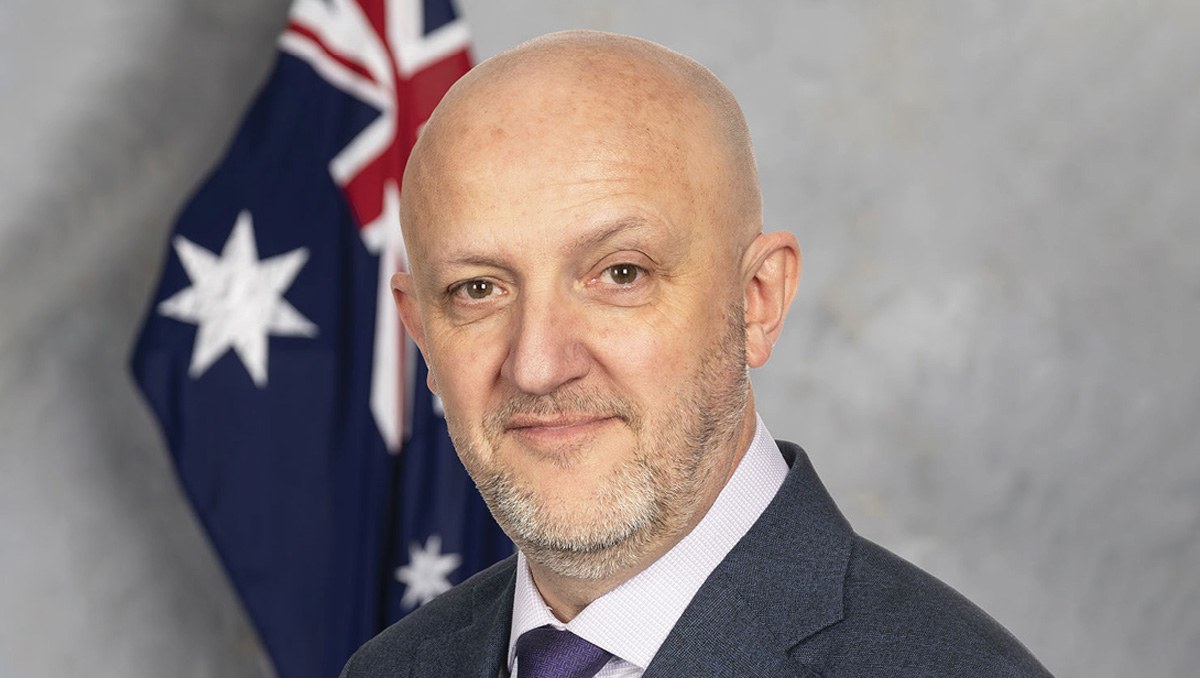The Australian Security Intelligence Organisation (ASIO) director-general of security, Mike Burgess, has confirmed that foreign espionage has cost the Australian economy more than $12.5 billion from 2023 to 2024.
Burgess made the comments during a speech in the “26th Annual Hawke Lecture: Counting and countering the cost of espionage”, published on 31 July.
“Australia’s defence sector is a top intelligence collection priority for foreign governments seeking to blunt our operational edge, gain insights into our operational readiness and tactics, and better understand our allies’ capabilities,” Burgess (pictured) said.
“Targets include maritime and aviation-related military capabilities, but also innovations with both commercial and military applications. And with AUKUS, we are not just defending our sovereign capability. We are also defending critical capability shared by and with our partners.
“Foreign intelligence services are proactive, creative and opportunistic in their targeting of current and former defence employees: relentless cyber espionage, in-person targeting and technical collection.
“In recent years, for example, defence employees travelling overseas have been subjected to covert room searches, been approached at conferences by spies in disguise and given gifts containing surveillance devices.
“(In one case,) an Australian defence contractor invented, manufactured and marketed a world-leading innovation. Sales boomed for a while but suddenly collapsed, for no apparent reason.
“Customers began flooding the company’s repair centre with faulty products. While the returns looked genuine, closer examination revealed they were cheap and nasty knock-offs.
“One year earlier, a company representative attended a defence industry event overseas and was approached by an enthusiastic local. She insisted on sharing some content via a USB, which was inserted into a company laptop. The USB infected the system with malware, allowing hackers to steal the blueprints for the product. Almost certainly, the ‘enthusiastic local’ worked for a foreign intelligence service.
“The blueprints were given to a state-owned enterprise, which mass-produced the knock-offs and deprived the Australian company millions of dollars in lost revenue; the tangible cost of espionage.
“More recently, an Australian company developed an expensive and highly sophisticated military capability, only for another country to unveil a prototype with unmistakable similarities shortly afterwards. While I cannot categorically say espionage was involved, spy chiefs do not believe in coincidences.
“Increasingly, ASIO is seeing nation states using even more sophisticated and difficult-to-detect methods to illicitly obtain valuable information … ASIO estimates the threat from espionage will only intensify. It is already more serious and sophisticated than ever before, so our response must also be more serious and sophisticated than ever before.
“The espionage threat is serious, but not insurmountable. The people conducting espionage are sophisticated, but not unstoppable.
“If you are spying in this country, ASIO is looking for you. And if you are being spied on in this country, ASIO is looking out for you.”
Burgess also reminded industry employees not to broadcast their security clearance levels and information regarding secure projects.
“On just one professional networking site, the profiles of more than 35,000 Australians indicate they have access to sensitive and potentially classified information,” he said.
”Around 7,000 reference their work in the defence sector, including the specific project they are working on, the team they are working in, and the critical technologies they are working with.
“Close to 400 explicitly say they work on AUKUS, and the figure rises above 2,000 if you include broader references to ‘submarines’ and ‘nuclear’.
“Nearly two and a half thousand publicly boast about having a security clearance, and thirteen hundred claim to work in the national security community … Surely these individuals, of all people, should understand the threat and recognise the risk?”
Foreign actors are primarily focused on Australia’s political decision making and policy priorities (such as AUKUS), stealing intellectual property and research, obtaining personal information for experts and critics, mapping sabotage targets, and recruiting elected officials, military personnel, and academics.
There are increasing instances of espionage attempts against advanced technology with both civilian and military applications, negotiations and investments to give foreign companies commercial advantage, Antarctic research, green technology, critical minerals and rare earths extraction and processing.
Burgess also outlined Australia’s primary espionage adversaries as Russia, Iran, and the People’s Republic of China.
“A new iteration of great power competition is driving a relentless hunger for strategic advantage and an insatiable appetite for inside information,” he said.
“Russia remains a persistent and aggressive espionage threat. Last year, two Russian-born Australian citizens were arrested and charged with an espionage-related offence.
“Separately, I can confirm in 2022 a number of undeclared Russian intelligence officers were removed from this country.”
The decision followed a lengthy ASIO investigation that found the Russians recruiting proxies and agents to obtain sensitive information and employing sophisticated tradecraft to disguise their activities.
“I’ve previously named China, Russia, and Iran; but many other countries are also targeting anyone and anything that could give them a strategic or tactical advantage, including sensitive but unclassified information.
“As just one example, the institute estimates foreign cyber spies stole nearly $2 billion of trade secrets and intellectual property from Australian companies and businesses in 23–24,” Burgess said.
ASIO has reportedly detected and disrupted 24 major espionage and foreign interference disruptions in the last three years, more than the previous eight years combined.
In some instances, a security clearance holder was recruited to hand over official free-trade negotiations documents, and an asset was employed as a researcher at a media outlet to shape reporting and early warning of critical stories.
Nation-state hackers also compromised a peak industry body to steal sensitive information about exports and foreign investment, hacked into the systems of a law firm involved in sensitive government-related litigation and had a visiting academic break into a restricted technology laboratory to film its contents.

David Hollingworth
David Hollingworth has been writing about technology for over 20 years, and has worked for a range of print and online titles in his career. He is enjoying getting to grips with cyber security, especially when it lets him talk about Lego.

